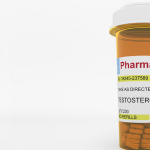Bioengineered Implant May Provide Long-Lasting Relief from Type 1 Diabetes
Node Smith, ND
People suffering from Type 1 diabetes are set to benefit from an innovative therapy being developed in an EU-funded project that promises to restore the body’s ability to regulate blood sugar via a small bioengineered implant.
DRIVE project aims to provide long-lasting solution to challenges of managing T1D
The EU-funded DRIVE project aims to provide a long-lasting solution to the therapeutic challenges of managing Type 1 Diabetes mellitus (T1D), a chronic condition characterized by high blood sugar that affects millions of people globally. If not controlled carefully – usually through daily injections of blood-sugar regulating insulin – the disease damages the eyes, kidneys and nerve endings, can cause heart disease and may lead to premature death.
The novel system developed in DRIVE would eliminate the need for insulin injections
Instead, a bioengineered capsule made of safe and natural materials, called a β-shell, would be implanted into the patient’s abdomen during a minimally invasive procedure. The capsule contains a gel, called β-gel, filled with pancreatic islet cells which, in healthy people, are responsible for secreting insulin from the pancreas to control blood sugar. These implanted β-cells would produce insulin inside T1D patients’ bodies, enabling them to live healthy and normal lives for up to five years before requiring a replacement implant.
DRIVE’s β-System constitutes a significant advance on an existing but rarely used therapy for T1D diabetes involving the transplantation of pancreatic islet cells from donor pancreases, which offers patients natural blood-sugar control for only one or two years. The treatment’s high cost, the need for islet cells from several donor pancreases and the high risk of the patient’s body rejecting the transplanted cells means it is only currently offered to adults who have developed the severest complications from T1D.
Hitting the target
‘The DRIVE project addresses these challenges with the development of a completely new system to deliver pancreatic β-cells effectively in a smart and targeted way. This will mean fewer donor pancreases are needed for cell transplantation, allowing many more patients to avail of a more effective and longer-lasting treatment,’ says project manager Janice O’Sullivan at the Royal College of Surgeons in Ireland.
To obtain β-cells from donor pancreases, the DRIVE consortium has developed a process using bio-engineered enzymes optimized in laboratory trials, enabling the extraction of more purified β-cells from a single pancreas than current techniques. Added to the β-gel, which mimics a normal pancreatic environment, the cells are able to survive and continue to detect blood sugar and secrete insulin.
The encapsulating β-shell protects the cells from the body’s immune system, minimizing the risk of rejection and reducing the patient’s need for long-term immunosuppressive medication.
Clinical trials and commercialization
Pre-clinical testing has shown highly promising results, setting the stage for further development and human clinical trials in the near future. The DRIVE partners are designing optimized and scalable manufacturing processes in preparation for commercialization of the β-System. The partners, who have applied for five patents for the technology, are also collaborating in a sister EU-funded project called DELIVER which will further develop advanced therapies with a focus on breaking insulin-dependency in children with Type 1 diabetes.
According to the World Health Organization, the direct healthcare costs of Type 1 and Type 2 diabetes, which together affect more than 382 million people worldwide, account for as much as 15 % of annual healthcare budgets. Direct costs exceed EUR 90 billion annually in five EU countries (France, Germany, Italy, Spain and the United Kingdom) alone, with a similar amount incurred in indirect costs such as work absenteeism, early retirement and social support.
Garry Duffy, the project coordinator at the National University of Ireland Galway, says the work conducted in DRIVE will have a significant impact on the social and economic burden of Type 1 diabetes.
‘DRIVE’s innovative technologies will minimize the direct costs of diabetes and islet transplantation by optimizing islet extraction from donor pancreases, cutting the number of islets required to regulate blood sugar effectively and reducing complications through increased surgical safety, localized immunoprotection and improved blood-sugar control.’
 Node Smith, ND, is a naturopathic physician in Humboldt, Saskatchewan and associate editor and continuing education director for NDNR. His mission is serving relationships that support the process of transformation, and that ultimately lead to healthier people, businesses and communities. His primary therapeutic tools include counselling, homeopathy, diet and the use of cold water combined with exercise. Node considers health to be a reflection of the relationships a person or a business has with themselves, with God and with those around them. In order to cure disease and to heal, these relationships must be specifically considered. Node has worked intimately with many groups and organizations within the naturopathic profession, and helped found the non-profit, Association for Naturopathic Revitalization (ANR), which works to promote and facilitate experiential education in vitalism.
Node Smith, ND, is a naturopathic physician in Humboldt, Saskatchewan and associate editor and continuing education director for NDNR. His mission is serving relationships that support the process of transformation, and that ultimately lead to healthier people, businesses and communities. His primary therapeutic tools include counselling, homeopathy, diet and the use of cold water combined with exercise. Node considers health to be a reflection of the relationships a person or a business has with themselves, with God and with those around them. In order to cure disease and to heal, these relationships must be specifically considered. Node has worked intimately with many groups and organizations within the naturopathic profession, and helped found the non-profit, Association for Naturopathic Revitalization (ANR), which works to promote and facilitate experiential education in vitalism.
Node Smith graduated from the National University of Natural Medicine (NUNM) in 2017, and is currently licensed as a naturopathic physician in Oregon and working towards becoming licensed in Saskatchewan, Canada as well.










